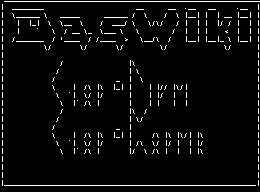Pages (Latest 10 updated) :
Menu (Edit):
- Das Wiki
- zsh.md
- zoneminder.md
- yubikey.md
- yasnippet.md
- xprofile.md
- xmonad.md
- wpa_supplicant.md
- wp3.md
- windows.md
Menu (Edit):
Link List (Edit):
Contents:
# _ _ ____ _
# | | | |___ ___ _ __ / ___| ___ _ ____ _(_) ___ ___
# | | | / __|/ _ \ '__| \___ \ / _ \ '__\ \ / / |/ __/ _ \
# | |_| \__ \ __/ | ___) | __/ | \ V /| | (_| __/
# \___/|___/\___|_| |____/ \___|_| \_/ |_|\___\___|
#
# __ __
# | \/ | __ _ _ __ __ _ __ _ ___ _ __ ___
# | |\/| |/ _` | '_ \ / _` |/ _` |/ _ \ '__/ __|
# | | | | (_| | | | | (_| | (_| | __/ | \__ \
# |_| |_|\__,_|_| |_|\__,_|\__, |\___|_| |___/
# |___/
#
User Level Service Managers
We are not talking about systemd, openrc, rc.d, or sysv. Those are system level service/daemon management systems. Here we are talking about user level service managers, that is, services that are started and run by a user of the system, or a service that does not interface well with a system service manager.
As far as user level service managers goes, there are two options one should keep in mind.
 Anoduck's Das Wiki
Anoduck's Das Wiki